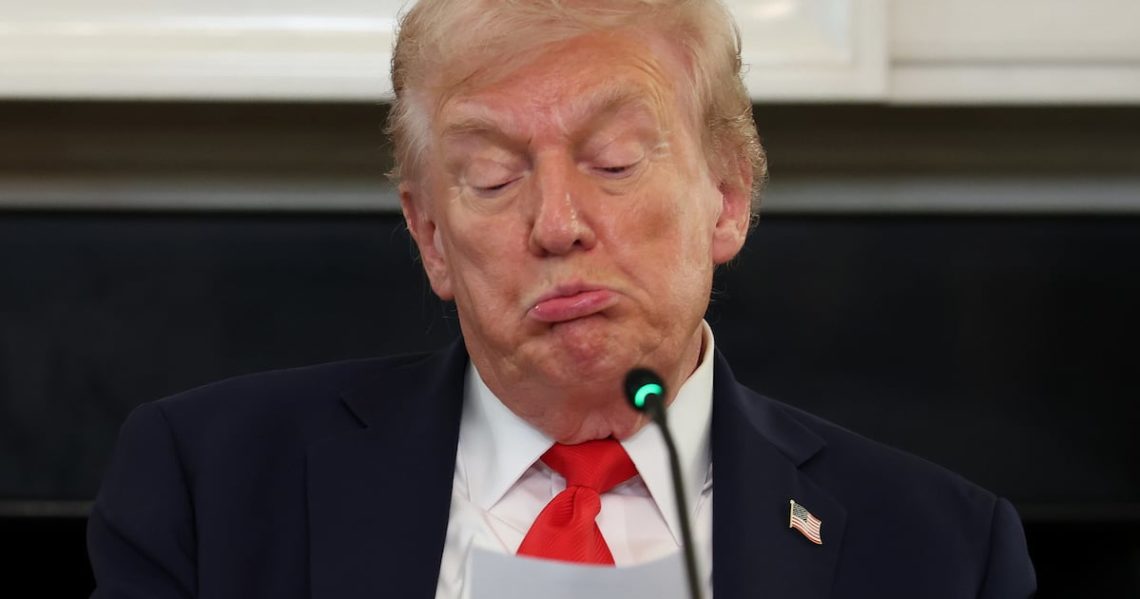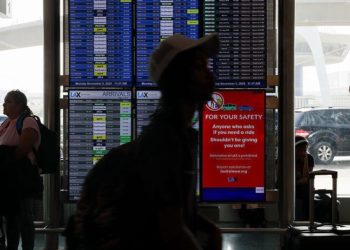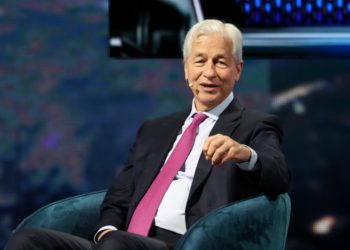The odds of the Supreme Court upholding President Donald Trump’s signature economic policy plummeted on Wednesday after two key justices sounded skeptical of the government’s arguments.
Online better markets showed the odds of the justices ruling in Trump’s favor in a pair of challenges to his sweeping tariffs fell by about 50 percent after the justices heard oral arguments in the cases.
On Polymarket, the odds of the justice’s ruling in Trump favor fell from 50 percent to 25 percent between Wednesday afternoon and Thursday morning.
Kalshi showed slightly better but still weak odds, falling from a high of 46.5 percent before the hearing to just 28 percent after.
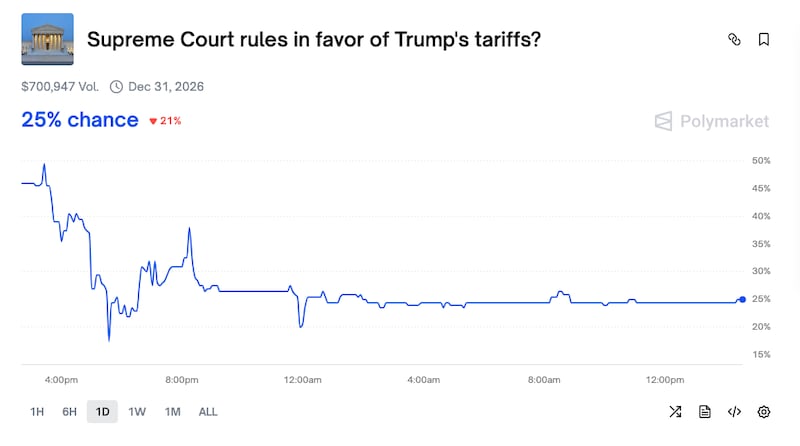
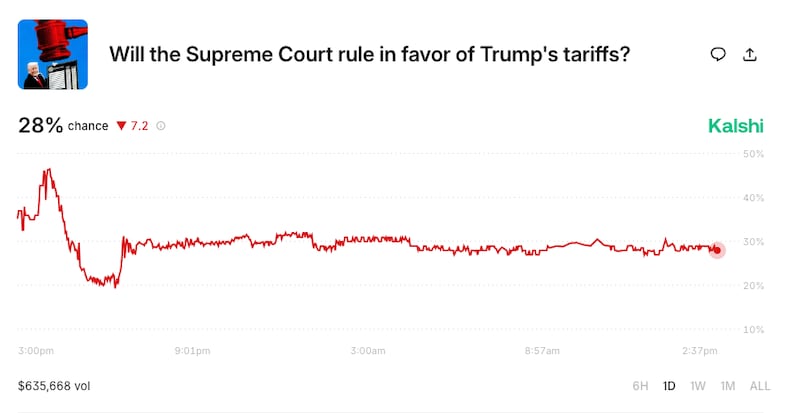
Trump’s son Donald Jr. sits on Polymarket’s advisory board and is a strategic advisor for Kalshi.
During Wednesday’s arguments, the court’s two potential swing votes—Chief Justice John Roberts and Justice Amy Coney Barrett—asked a series of pointed questions about whether the president really had the power to unilaterally impose tariffs on dozens of trade partners.
The administration has argued that Trump’s tariffs are valid under the International Emergency Economic Powers Act, which gives presidents the power to regulate international commerce in response to an unusual or extraordinary threat against the U.S.
The White House said that Trump can impose the tariffs in response to the twin “national emergencies” of trade deficits and the fentanyl crisis.
Two lower courts, however, have found that the law did not give Trump the power to bypass Congress and impose the tariffs.
In the meantime, the duties—a type of import tax paid by U.S. companies, which must eat the additional costs or pass them on to consumers—have been allowed to remain in effect throughout the appeals process.
The president has adjusted the rates up and down to punish, reward, or apply pressure to foreign countries on things that have nothing to do with fentanyl or trade deficits.
Roberts, who was appointed in 2005 by President George W. Bush, quickly pointed out on Wednesday that the ability to impose taxes “has always been a core power of Congress.”
He also said the central questions doctrine, a legal principle that requires Congress to grant federal agencies explicit authority to act, appeared to apply in the case.
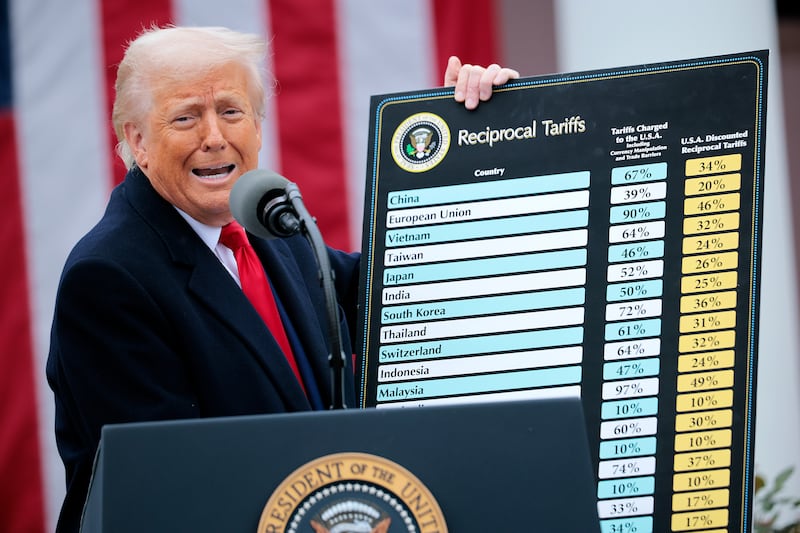
Coney Barrett, a Trump appointee, seemed unsatisfied with U.S. Solicitor General John D. Sauer’s arguments on behalf of the government that there were statutes that bestowed tariff authority on the president.
The Daily Beast has reached out to the White House for comment.
Ever since a federal appeals court struck down a major part of the president’s tariff policy in August, Trump has talked about the case in apocalyptic terms, warning on social media that without his tariffs, “our Country could be reduced to almost Third World status.”
“Next week’s Case on Tariffs is one of the most important in the History of the Country,” he wrote on Monday. “If a President was not able to quickly and nimbly use the power of Tariffs, we would be defenseless, leading perhaps even to the ruination of our Nation.”
But in an unusual turn for the Trump administration, a number of the briefs submitted in support of the companies challenging the tariffs were authored by conservatives, libertarians, and business groups who oppose the duties.
The White House is preparing a back-up plan in case the tariffs are struck down.
The post Odds of Trump Winning Key SCOTUS Case Tank After Terrible Start appeared first on The Daily Beast.
